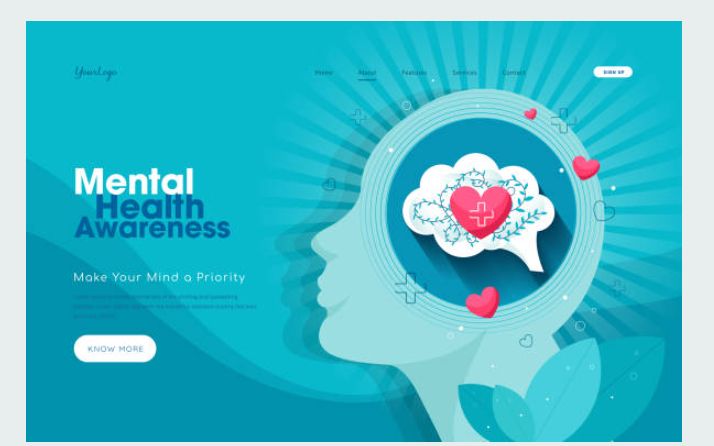Mental health issues are an integral aspect of overall health, yet they remain vastly under-addressed in many parts of the world. Despite the prevalence of mental health conditions—ranging from anxiety and depression to severe mental illnesses like schizophrenia—many individuals still face significant challenges in both recognizing the importance of mental health and accessing the necessary care and resources. Mental health awareness and access to care are interconnected pillars that determine the well-being of individuals and communities alike.
While awareness is crucial for encouraging early diagnosis and reducing stigma, access to care ensures that people can receive the support and treatment they need to manage their mental health.This article explores the importance of mental health awareness, the barriers to care, and the critical need for improved access to mental health services. It also examines current efforts to address these challenges and suggests a path forward to creating more supportive, inclusive environments for mental health care.

Mental Health Awareness
Reducing Stigma and Promoting Well-being Mental health awareness refers to the efforts to inform the public about the signs, symptoms, and treatments of mental health disorders. Awareness campaigns seek to normalize discussions around mental health, thereby reducing stigma and misconceptions. This is important because stigma remains one of the most significant barriers to individuals seeking help for mental health concerns. People may feel ashamed or fear judgment, leading to delayed care or total avoidance of treatment.
The stigma surrounding mental illness often stems from misconceptions or lack of knowledge. Historically, mental health disorders were poorly understood, with many people associating them with weakness, personal failure, or even moral failing. While progress has been made in terms of understanding mental health, stereotypes still persist, often resulting in people feeling isolated, misunderstood, or discriminated against.Mental health awareness efforts aim to:1. Educate the public: Raise awareness about the prevalence of mental health issues and the importance of early intervention. This includes teaching people how to recognize symptoms of mental health conditions in themselves and others, as well as promoting strategies for self-care.

2. Combat stigma
Challenging negative stereotypes and encouraging acceptance, so that people feel comfortable discussing their mental health without fear of judgment. Public figures, celebrities, and even social media influencers have played an important role in this, using their platforms to speak openly about their own mental health struggles.
3. Encourage open conversation
Mental health awareness helps to create a supportive environment where people feel empowered to talk about their mental health without shame. Schools, workplaces, and community organizations have a role to play in fostering this culture of openness and support.
4. Promote mental health as a priority
Making mental health a central part of public health discussions is essential. Mental health should be seen as equally important as physical health, and societal attitudes should reflect this. In recent years, efforts such as World Mental Health Day, Mental Health Awareness Month, and public health campaigns like “Time to Change” in the UK or the “Let’s Talk” initiative in Canada have made significant strides in reducing stigma and promoting better mental health practices. However, while awareness is rising, there is still much work to be done.Barriers to Accessing Mental Health Care While awareness of mental health is growing, access to care remains a significant challenge for many people. A variety of factors, ranging from financial limitations to geographical constraints, create obstacles for individuals who need help but are unable to obtain it.
These barriers can be categorized into several key areas:
1. Financial Barriers: The cost of mental health care is one of the most significant barriers to accessing treatment. In many countries, especially in low-income areas, mental health services are either not covered by insurance or are prohibitively expensive for those without financial means. Without insurance or adequate coverage, individuals may be forced to forego essential care, leading to worsening symptoms and more complicated conditions.
2. Geographic Barriers: Access to mental health services can be particularly challenging in rural or underserved urban areas. These regions often have few mental health professionals, meaning that individuals may need to travel long distances or wait months for an appointment. In some cases, the lack of specialized care forces individuals to seek help from general practitioners, who may not have the necessary expertise to provide effective treatment.
3. Cultural and Linguistic Barriers: Cultural factors and language differences can also impede access to care. In multicultural societies, the lack of mental health professionals who understand a patient’s cultural context or speak their language can make treatment less effective. In addition, cultural stigmas around mental illness may make individuals from certain backgrounds less likely to seek help, even if services are available.
4. Shortage of Mental Health Professionals: The global shortage of mental health professionals—especially psychiatrists, psychologists, and counselors—exacerbates the problem. In many countries, the ratio of mental health professionals to the general population is far below what is needed to meet demand. This leads to long wait times and a lack of personalized care, as mental health professionals are often overwhelmed by the number of patients they must see.
5. Systemic Challenges: In many healthcare systems, mental health services are separate from general health services. This fragmentation can lead to confusion for patients seeking care, and delays in receiving treatment. The lack of integration between mental health care and primary care can also prevent early identification and intervention for individuals at risk.Addressing the Challenges: Expanding Access to Mental Health Care To overcome these barriers, a multifaceted approach is required that focuses on improving both the awareness and access to mental health services.

Several key strategies can help to improve mental health care accessibility:
1. Integrating Mental Health into Primary Care: One of the most effective ways to improve access to mental health services is by integrating mental health care into general healthcare systems. Primary care doctors, nurses, and community health workers should be trained to recognize common mental health issues and provide basic care, referral, or follow-up. This integration reduces the stigma of seeing a mental health professional and ensures that individuals receive timely care.
2. Telemedicine and Digital Health Solutions: The rise of telemedicine has opened new opportunities for improving access to mental health care, especially in underserved areas. Online counseling, mental health apps, and virtual therapy sessions can help bridge the gap for people who cannot access in-person services. These options can also reduce the stigma associated with seeking mental health care, as they provide more privacy and convenience for individuals.
3. Policy Reform and Advocacy: Governments and policymakers must prioritize mental health by ensuring that services are adequately funded and integrated into public health systems. Mental health care should be made more affordable through insurance reforms and public funding. Mental health professionals should also be better supported with training and fair compensation, so they can meet the growing demand for services.
4. Community Support Networks: Building community-based mental health services can enhance access, especially for marginalized or vulnerable groups. These services should be culturally competent and adaptable to the specific needs of different communities. Peer support groups, helplines, and local outreach programs can provide ongoing support and reduce the isolation that many people feel when they are struggling with mental health issues.

5. Reducing Stigma: Ongoing efforts to reduce stigma must be part of any strategy to improve access to care. Public education campaigns that emphasize the importance of mental health, combined with greater representation of mental health issues in the media, can help to normalize seeking help.ConclusionMental health awareness and access to care are intertwined components that must be addressed simultaneously in order to create a healthier, more inclusive society. While increasing awareness of mental health issues has made significant strides in reducing stigma, access to care remains a crucial barrier for many people worldwide.
Overcoming the financial, geographical, cultural, and systemic challenges to mental health care requires collaborative efforts from governments, healthcare providers, non-profit organizations, and communities.By improving education, reducing stigma, and expanding access to care, we can ensure that individuals facing mental health challenges receive the support they need to lead fulfilling and productive lives. As mental health becomes a larger priority globally, we must continue to advocate for a world where mental well-being is recognized as a fundamental part of overall health, and where care is accessible to all, regardless of their circumstances.




